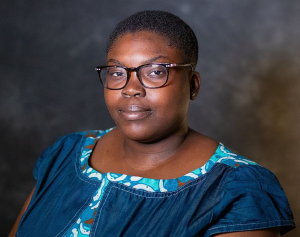Dr. Stacey Louie, an assistant professor of civil and environmental engineering, has received a $12,000 grant to support a student and research work on how contaminants interact with water.
The funding comes from the Texas Hazardous Waste Research Center at Lamar University. The main objective of the research will be developing size exclusion chromatography (SEC) methods to investigate organic contaminant interactions with dissolved organic matter (DOM). Louie said the student working with her will be Tchemongo Berté.
“She's a Masters thesis student in her first year and has already gotten a great start in processing soil samples, setting up the instruments and collecting the preliminary data showing the feasibility of the project,” Louie said.
The project ties into Louie's research on issues of water quality, and how pollutants affect it.
“The award and research focuses on water quality, specifically the runoff of chemical pollutants like pesticides and herbicides into natural water bodies and their fate in the environment,” she said.
Using SEC methods will ideally allow Louie and Berté to identify contaminant interactions with dissolved organic material, especially as it relates to water quality.
“The new knowledge on contaminant interactions with dissolved organic matter will help us understand how they move around the environment, how resistant they are to degradation, and how easily they can be removed in various drinking water treatment processes,” Louie said. “Therefore, the research has practical applications to better predict the concentrations of pollutants in our drinking water sources and identify more effective methods to treat each contaminant.”
Louie said that ideally, their method could provide quicker and cheaper results.
“A major hurdle in this type of research is that existing methods to measure the contaminant-organic matter interactions are either extremely time-consuming or expensive,” she said. “Our research also has practical benefits in that we are developing methods that are much faster than existing methods. There are a huge number of different chemical pollutants that could be present in water. Our method will allow us to potentially screen many pollutants within a short time.”
The funding period for the grant is April 1, 2020 through June 30, 2021.

